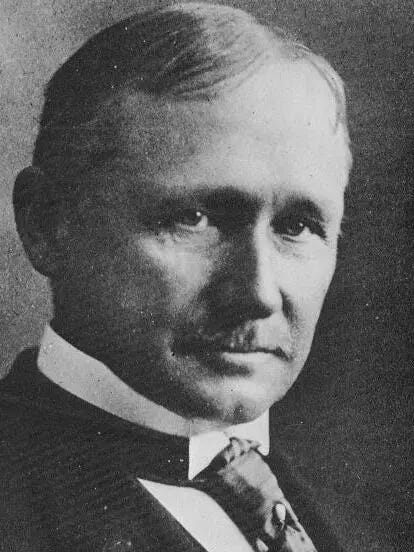Rejecting The Watchmakers
Technocrats need an audience in order maintain their position of power because they themselves do not produce
Intellectuals give people who have the handicap of poverty the further handicap of a sense of victimhood.
Orange
We are comforted when a team of authorities and experts claim to have studied a problem in depth, and have formulated a solution for a systemic problem. Our ideals of progress are reinforced when there is a panel of professionals announcing that they can guide us to better times. That’s a sign of an advanced civilization and that specialization is key to improving our lives, we merely have to follow along. But don’t dare to think that you are able to judge the success of that specialization, for that too is only up to the experts to decide. You may be using measures valid last week, the have new data points they have considered, or sometimes they do not have enough data points, and until they do, you are just wrong anyway.
In the many conversations Orange and I have leading up to our book and documentaries, we recognized a prevalent pattern that we take issue with: the anointed authorities become too mired in abstractions while missing the greater points that systems are comprised of individuals and their moral compasses, and an over reliance on the hope that better educated people will make moral choices. Many also miss the fact with limited access to power, less corruption will affect less people.
This may sound like a rejection of education, training, and applying systematic approaches to examine social problems. It is not - it is a rejection of the wisdom of the scientific management elite, the Watchmakers of Society, who are destined to make decisions for us as we remain silent. We do reject following expertise over the exercise of liberty. Subordinating questions because the credentialed class sounds authoritative, confident that their research should override your right to exercise your own judgment, leads to disaster. We are still living with the aftermath of the Covid disaster. Not the virus itself, but the capricious, scientifically unsound protocols that lead to excess deaths, psychologically damaged children and extended political power that our leaders arrogantly wield and refuse to yield.
What is it that conditioned us to accept authority crafted by scientific management so readily, and what do we mean by the Watchmakers? Because artists copy yet masters steal shamelessly, I am stealing the Watchmaker theme from Clockwork Angels, a steampunk novel by Kevin J Anderson and Neil Peart. The novel centers around a young man who goes on a quest to defy the Watchmaker, the architect of a steam engine based society run with complete precision. The Watchmaker observes, adjusts, and controls from afar. Precision and mechanics are The Watchmakers gods.
The analogy drawn here is apt: in 1907 Frederick Taylor published a study on principles of scientific management he developed while working in the steel industry. He developed his theories further with his book The Principles of Scientific Management. In Scientific Management systems take primacy over individuals, and this theme shaped our culture regarding authority and centralized planning informed by science and engineering. Scientific Management was applied to numerous fields, particularly education. And indeed, 1907 is still well within the steam powered era of the Industrial Revolution, and because Taylor, with great zeal, claimed the mantel of scientific authority and engineering, we can consider him and his acolytes as Watchmakers. Taylor essentially insisted on an entire culture that responded to top down control. The US Congress was impressed enough to entertain his testimony about re-engineering how Americans worked.
“In the past Man has been first. In the future the system must be first”
Frederick Taylor
Taylor summarized his managerial discipline as:
A regimen of science, not rules of thumb
An emphasis on harmony, not the discord of competition
An insistence of cooperation, not individualism
A fixation on maximum output
The development of each man to his great productivity
The goal was to make workers interchangeable:
Mechanically controlled work pace
Repetition of motion
Tools and technique selected for worker
Only superficial attention is asked of worker – in order to keep production going the steps of each workers process must NOT be intellectually taxing
Progressivism finds it’s roots here: break from the past, use new research to redesign life, adjust your attitude to love your work is a socialist creed echoed by Taylor.
Industry was used as the example of success, identifying output and productivity as the key factors of measurement. As an industrial powerhouse, America was a prime example how manufacturing could transform a nation. However, education was in crisis, there was a desperate need for reform. In 1903 The Atlantic Monthly published an article by William Bagley with new requirements: teachers would be obedient to administrators, students MUST be obedient and rigid routine was to be implemented. By 1910 articles began to praise some institutions stating “Our universities are beginning to run as business colleges”.
Until this time American education emphasized knowledge. Here is an example of an exam an 8th grader was expected to pass. After John Dewey, and endless education reforms, take a look at these questions and ask yourself if the conformity of outcome has helped us. Other than the mathematics requirement, none of these topics below are considered requisites for business, or for working in a factory. They are vital for an independent, thinking person.
Then a campaign against public school began. From the NEA and Carnegie came the following mission:
The character of our education must change with the oncoming of the years of this highly practical age. We have educated the mind to think and trained the vocal organs to express the thought, and we have forgotten the fact that in four times out of five the practical man expresses his thought by the hand rather than mere words.
While technical training is vital, so is imparting the ability for a person to use their mind. What the industrialists wanted to limit thoughts of liberty and ideals that would perhaps disobey. This would affect efficiency.
Henry Ford and Lenin
In 1918, Lenin urged the adoption of Taylor’s methods for Soviet industry and society. Lenin wrote:
The war taught us much, not only that people suffered, but especially the fact that those who have the best technology, organization, discipline and the best machines emerge on top; it is this the war has taught us. It is essential to learn that without machines, without discipline, it is impossible to live in modern society. It is necessary to mast the highest technology or be crushed.
Henry Ford adopted Taylor’s ideals and became so enamored with their success he envisioned villages where workers would live and be assisted by scientific management. “A great business is really to be human.”
The Soviet Union adopted fordizatsiya – observe all working conditions, enforce obedience, keep production running.
The result of Taylorism can been seen as a two tier system: rigid oversight for workers who can be interchangeable while the upper crust is allowed to be the “thought leaders”. As long as the system is served, pride of work, excellence are irrelevant.
Dependency leads to further corruption and complacency
Specialization is the mantra we have lived by for many decades - why consider other factors outside of your area of expertise, the more you focus on a core area of knowledge, the better you will be a producing results. If we all specialize, we need less time for other areas of consideration. Our government works that way, compartmentalization considered a sign of advanced thinking.
So we have been conditioned to narrow our gaze to our jobs right in front of us. And as we did technocrats were able to passed off as experts. Elaborate studies require a discerning eye to detect errors, but if a group of peers gives a study the thumbs up, we castigate ourselves should we disagree - we are conditioned to say “my thinking is out of turn, how can I comment on matters that I really don’t know about?” This is a shuttering of the mind, but square pegs in a round hole don’t make the system function well.
There is a weakness here that is exploited: with more people dependent on central authority and experts to provide guidance and solutions to crisis, the greater the stress of everyday living, the less time people have for participating in the decision process of civic life. If you are hobbled to the point of needing assistance from the experts for more and more basic elements for survival, they greater your dependency can be exploited. Via dependency, many are living in a survival mode to this day. Hence our “need” for experts. The sad irony is that the experts, to be able to function, require the benefits of the American Dream while we struggle and survive in the wake of their failed ideals. The denial of the dream for a majority of others is form of corruption.
They are able to collect while we are required to give.
Keep reading with a 7-day free trial
Subscribe to Cultural Courage to keep reading this post and get 7 days of free access to the full post archives.








